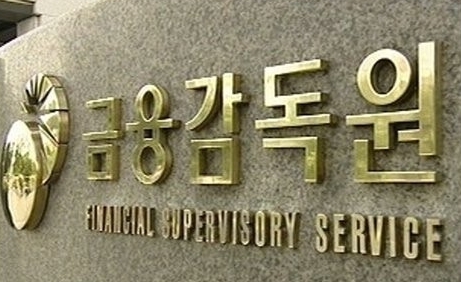Financial regulators plan to tighten their monitoring of lenders’ mortgage issuances in a move to tame the country’s snowballing household debt.
The Financial Services Commission, the Financial Supervisory Service and the Finance Ministry will announce a set of policies to tackle household debt, including the lenders’ stricter assessment of the borrowers’ debt-to-income ratios, sources said. DTI is widely used as a gauge for a borrower’s ability to manage monthly payments and repay debts.
The DTI, currently 60 percent for all lenders in the Seoul metropolitan area, is the recurring monthly debt over gross monthly income.
“On housing loans, we will drive (the lenders) to more tightly assess the borrowers’ ability to repay, as well as to set a higher ratio of principal repayment,” a financial official was quoted as saying.
The Financial Services Commission, the Financial Supervisory Service and the Finance Ministry will announce a set of policies to tackle household debt, including the lenders’ stricter assessment of the borrowers’ debt-to-income ratios, sources said. DTI is widely used as a gauge for a borrower’s ability to manage monthly payments and repay debts.
The DTI, currently 60 percent for all lenders in the Seoul metropolitan area, is the recurring monthly debt over gross monthly income.
“On housing loans, we will drive (the lenders) to more tightly assess the borrowers’ ability to repay, as well as to set a higher ratio of principal repayment,” a financial official was quoted as saying.

Instead of lowering the DTI ceiling, the financial authorities are bickering with the DTI calculation factors, such as excluding irregular earnings from gross monthly income, to better assess the borrower’s repayment capacity.
The authorities also plan to adjust the repayment rate in proportion to the borrowers’ income change. If the borrower’s income dwindles, their borrowing limit drops accordingly, forcing them to repay the difference. This may strike relatively hard on self-employed small business owners with unpredictable monthly income and retirees without fixed income.
To draw better cooperation from lenders, regulators are considering giving incentives to those who offer house-backed mortgages with monthly principal repayments. The incentives include reducing their mandatory contribution rate to the Housing Finance Credit Guarantee Fund, or giving higher evaluation credit in assessing the lenders’ key performance indicators.
The government’s move to monitor the DTI calculator comes about 15 months after it raised the DTI ratio ceiling to 60 percent on April 1 from the previous 50 percent, in order to invigorate the lackluster housing market.
Now the financial authorities are set to slow down the growth of household debt, without cooling down the real estate market that shows signs of recovery.
The country’s household debt reached 1,100 trillion won ($980 billion) as of the end of March, about 42.7 percent of which accounts for house-backed mortgage loans, according to Bank of Korea data.
In April, the household debt saw its fastest growth since the central bank began compiling the data in 2003.
By Chung Joo-won (joowonc@heraldcorp.com)











![[Today’s K-pop] BTS pop-up event to come to Seoul](http://res.heraldm.com/phpwas/restmb_idxmake.php?idx=644&simg=/content/image/2024/04/17/20240417050734_0.jpg&u=)





![[KH Explains] Hyundai's full hybrid edge to pay off amid slow transition to pure EVs](http://res.heraldm.com/phpwas/restmb_idxmake.php?idx=652&simg=/content/image/2024/04/18/20240418050645_0.jpg&u=20240419100350)

